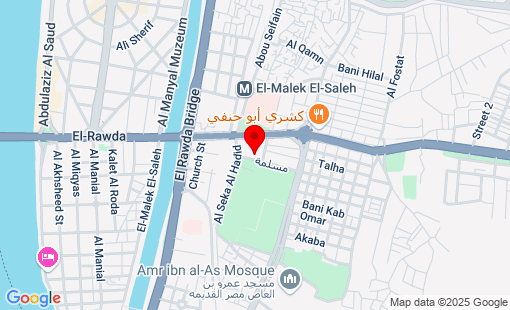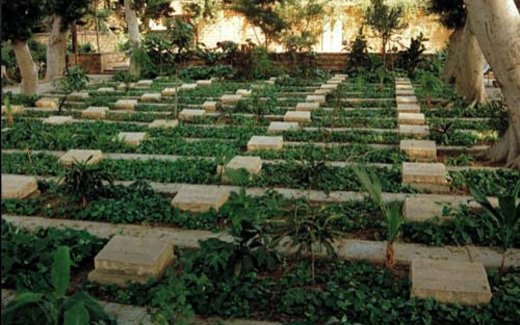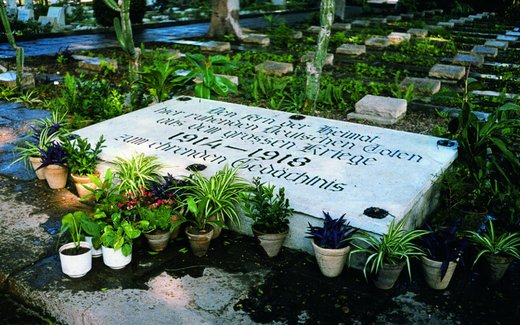Germans who lost their lives in the First World War rest in the cemetery in Old Cairo.
Description of the cemetery
A natural stone wall borders the cemetery on the street side. Visitors enter the grounds through an entrance building open to the cemetery with a lounge. It is designed like a park - with palm trees and tall old eucalyptus trees. Stone slabs mark the grave locations, each bearing the names of two war dead with their ranks and dates of death. One memorial slab bears the inscription: "In honor of the German dead from the great war 1914 - 1918 who rest here far from home".
Occupancy
During the First World War, British and Ottoman troops fought for supremacy in the Middle East. The Ottoman Empire (now Turkey) formed the Central Powers bloc with Germany, Austria-Hungary, Bulgaria and Italy. Germany and Austria-Hungary supported the Ottoman military with troops and material.
In addition to 125 civilian dead, 176 soldiers are buried at this war cemetery in Cairo. 27 of them were transferred there from the British war cemetery at Tel-el-Kebir by the German War Graves Commission in August 1953.
History
There has been a Protestant Swiss cemetery in the Al Kafour district of Cairo since 1925. in 1932, the Egyptian government gave the German colony a 3,240 square meter plot of land right next to it.
The war graves agreement between Germany and Egypt dates from February 22, 1956 and the German Embassy in Cairo is responsible for the maintenance and care of the cemetery. The Federal Foreign Office covers the costs. In addition to Old Cairo, there is another German war cemetery in Egypt, El-Alamein.
Special feature
An inscription on the wall in Arabic and German commemorates the tropical doctor Bilharz (1825 - 1862), who is buried among the civilian dead: "Dr. Theodor Maximilian Bilharz dedicated his life to suffering humanity, to which he showed new ways of healing in 1851 by researching the disease named after him. Egypt and Germany remember his life and work with gratitude and reverence."
In 1851, Bilharz discovered a previously unknown parasitic worm in an intestinal vein during the autopsy of a deceased person in Cairo. The parasite penetrates the human organism through the skin and causes an acute and chronic disease - "schistosomiasis". The disease is widespread in the Egyptian Nile Delta.


